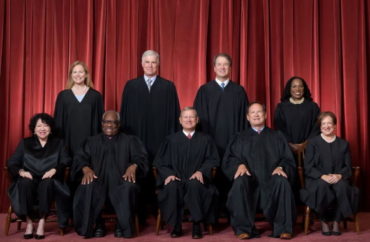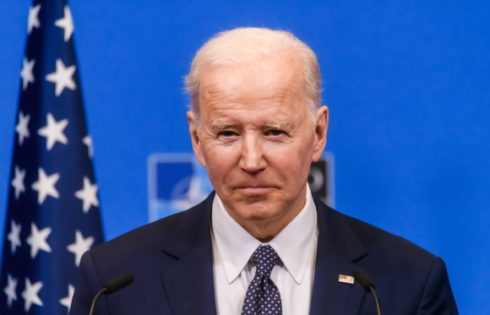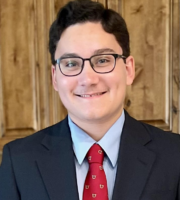
UPDATED
Worker freedom group says plaintiffs take issue with union’s political views
The Supreme Court should rule in favor of pro-Israel professors who are forced to be represented by an anti-Israel union, a recent filing argues.
The City University of New York Professors accuse the Professional Staff Congress of pushing anti-Israel views while speaking on their behalf.
The lawsuit challenges New York’s Taylor Law, “which authorizes union monopoly bargaining in the public sector,” according to National Right to Work Legal Defense Foundation Vice President Patrick Semmens. His group, along with the Fairness Center, have filed the appeal.
The law “forces the professors to accept the ‘representation’ of a union hierarchy they find abhorrent in violation of the First Amendment’s freedom of association protections,” Semmens told The College Fix via a media statement.
The forced unionization “unconstitutionally forces the professors to associate with other professors whose ideological beliefs and employment interests diverge greatly from their own,” Semmens said.
This means the law requires the professors “to associate with union officials and others who literally hate them and some of their most central beliefs,” the workers’ rights leader said.
Lower courts have ruled in favor of the current union law, however.
But the Supreme Court has expressed “concerns” with monopoly bargaining. “The Supreme Court restated its concerns most recently in the 2018 Foundation-won Janus v. AFSCME decision, with the majority calling monopoly bargaining ‘a significant impingement on associational freedoms,’” according to a news release from the worker freedom group.
Semmens also told The Fix “a victory for the professors here could have a major impact beyond New York and higher education.”
“Millions of public employees – including K-12 public school teachers, police, firefighters and others – are subjected to union forced ‘representation’ under state and federal laws,” Semmens said.
When asked by The Fix how academic unions like PSC should handle sensitive political topics among their members, Semmens said “affiliation should be completely voluntary.”
“Union bosses should choose to represent only their own voluntary members, and doing so would ensure union bosses are speaking and negotiating only for those workers who have voluntarily affiliated themselves with the union,” Semmens said.
Union says its legal case is strong, says complaint is meant ‘to eliminate unions’
The Professional Staff Congress disagrees, saying the complaint is “meritless” and “brought by faculty “who are not members of the PSC and who are funded by the anti-union National Right to Work Legal Foundation in another attempt to eliminate unions.”
The PSC views union representation as what “makes the workers’ power collective and gives them the combined strength to win better pay and working conditions,” spokesperson Francis Clark told The Fix via email.
“Appeals courts have repeatedly ruled that public-sector unions are not in violation of the [F]irst [A]mendment as they act as the exclusive bargaining agent for all employees in a bargaining unit—and SCOTUS has declined to hear such cases 12 times since 2014,” Clark said.
Clark said the National Right to Work Foundation is leveraging “deeply held convictions and pain that some PSC members feel about Israel and Palestine” and “the same failed legal arguments” to undermine union representation.
A Pennsylvania State University professor of labor and employment relations provided further insights via email to The Fix.
Professor Paul Clark said “the system of union-management relations in the U.S. operates on the principle that workers have the right to vote on whether they want to be represented by a union.”
“If a majority of a group votes in favor, the union is then obligated to represent the entire group, not just those who supported it,” Clark said.
Clark has researched and “worked with unions in Pennsylvania” “for over 40 years,” according to his biography.
“This ‘exclusive representation’ ensures that all workers in the group benefit from union-negotiated pay increases and benefits, regardless of their personal stance on the union.”
Furthermore, Professor Clark told The Fix that this principle has been instituted by both Congress and the courts “to avoid the chaos that would ensue if only those who voted for the union were represented, while others bargained individually. This situation would produce inconsistencies and complications for employers and employees.”
“Just as unions can be voted in by a majority, they can also be voted out by a majority. If the majority fails to vote out a union, they remain under union representation. In essence, the rule is that the majority’s decision prevails.”
Editor’s note: The article and headline have been updated to clarify the PSC represents the professors but the academics do not pay union dues or agency fees.
MORE: More than 1,000 scholars sign petition against AAUP for academic boycotts
IMAGE: Supreme Court
Like The College Fix on Facebook / Follow us on Twitter






Please join the conversation about our stories on Facebook, Twitter, Instagram, Reddit, MeWe, Rumble, Gab, Minds and Gettr.